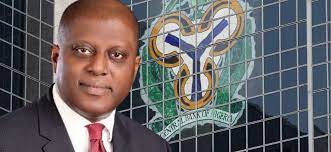Nigeria’s foreign exchange (forex) reforms have started to yield positive results. Foreign direct investments (FDIs) are growing, amid clarity and improvements in forex management.
Central Bank Governor Dr Olayemi Cardoso yesterday re-emphasised the policy thrusts and key strategic initiatives under the ongoing forex and monetary reforms, with an assurance that the groundwork for the reforms had been concluded and there would be greater stability and improved results.
The naira yesterday appreciated across the markets. At the Nigerian Autonomous Foreign Exchange Market (NAFEM), the naira was strengthened by 1.09 per cent to N1,419.86 per dollar. It was flat at the parallel market at N1,455 per dollar.
Experts were unanimous that the policy direction and actions of the apex bank on forex and monetary management hold substantial positive prospects for the economy, despite initial challenges.
They commended the apex bank for its commitment to policies, especially the resolution of the forex backlog, price efficiency and boosting primary liquidity in the forex market.
Cardoso said the Central Bank of Nigeria (CBN) policies and initiatives have engendered confidence among foreign and discerning domestic investors, providing the impetus to consolidate the efforts of the apex bank to attain price stability.
He explained that foreign investors were not just looking for short-term gains, but investing in Nigeria because they believe in the reforms and positive direction the country is heading. He noted the importance of combining different sources of funds, adding that Nigeria is making progress on all fronts.
According to him, the gradual reforms are seen as significant moves by outside observers, and the return of confidence and increased investments should help stabilize the foreign exchange market.
He said the recent decision that government agencies like the Nigeria National Petroleum Company (NNPCL) should send their funds directly to the CBN was a sign that people have confidence in the apex bank.
Cardoso pointed out that the decision has further engendered confidence among foreign investors and other stakeholders.
He said: “This is important because the central bank has been criticised for its handling of foreign currency,” Cardoso said, in relation to renewed trust in the apex bank’s forex management stance.”
The CBN governor said with the results from the reforms building up, the Naira will be strengthened.
Cardoso emphasised that the national currency is undervalued.
According to him, the current value of naira was a mix of panic, bad decisions and lack of understanding.
He urged people not to panic and to trust that Nigeria is making the right decisions, pointing out that international recognition, better ratings, and a measured approach by investors show that “Nigeria is on the mend.”.
On forex backlog, Cardoso said the apex bank had settled verified forex outstandings, which amounted to $2.3 billion, leaving current total outstanding forex obligations of $2.2 billion.
He explained that of the $7 billion forex claims, a forensic audit by Deloitte Management Consultant, which was commissioned by CBN, had shown that $2.4 billion were baseless.
He noted that the authorized dealers have not provided justifications for these invalid claims.
Cardoso reiterated his commitment to price stability as a way of tackling inflation and improving the way the Monetary Policy Committee (MPC) communicates its decisions.
He said the apex bank recognised past communication problems and stressed the importance of the right communication targeted at different groups of people.
The CBN governor spoke on the effectiveness of the MPC and how it affects the economy.
He emphasised the need for the MPC to work together with the fiscal authorities and make decisions that are impactful in the country’s best interests.
He confirmed that new independent-minded members will be appointed to the MPC before the next meeting scheduled to hold on February26 and 27.
Cardoso expressed confidence in their ability to address high inflation, which is a major issue impacting the standard of living.
He pointed to the International Monetary Fund (IMF’s) prediction of a significant decrease in inflation later this year as evidence that the current tightening measures are effective.
Cardoso clarified that the apex bank would concentrate on its core mandate of price stability while supporting the relevant government agencies in the areas of direct interventions by the government to support the economy.
“Our view is that we can’t get involved in direct interventions and we would rather focus our efforts on doing what we, as a central bank, are meant to do; which is to control inflation, stabilise prices, and ensure that we have a stable economic environment.
“By way of background, it is important for me to state clearly and unequivocally that I have nothing against interventions. It is done all over the world; in times of crisis, intervention does take place, and so, I am not saying it is necessarily a bad thing,” Cardoso said.
He however, insisted that such interventions ought to be done in a well thought-out manner and in such a way that does not destabilise the economy.
Cardoso said: “And then, where we can find those who can do these things, we are happy to partner with them on the understanding, of course, that as I have said earlier, it’s done in a reasoned manner and that they can deliver in a way that whatever interventions you put into the economy are not mismanaged.
“And that they get to where they are meant to get to because that, to me, is a concern, that handling such huge sums of money without having the capacity as a central bank to do that directly can create serious distortions in the environment and I think that’s part of the problems we are having today.”


